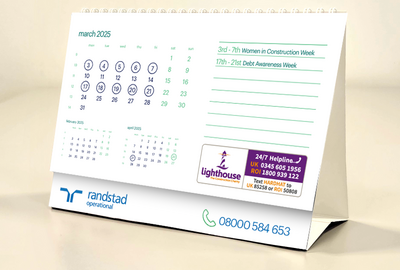- Onboarding is the solution to the problem of post-furlough anxiety
Almost half (45 per cent) of furloughed workers are anxious about their return to work, according to recruiter Randstad.
In a poll of almost 8,000 workers from across the UK, Randstad found that those in Northern Ireland were the most anxious (50 per cent) while those in the East of England were the least nervous (38 per cent). Among different age brackets, employees aged between 18-25 were the most nervous (56 per cent), compared to those over 68, who were the least (11 per cent).
best practice onboarding lower returners' anxiety
However, best practice emerged from the poll, which found that only 32 per cent of those who had returned and classified their onboarding experience as “good” or “very good” were anxious - compared to 61 per cent of those who had either no onboarding or an experience they regarded as either “poor” or “very poor”.
Victoria Short, CEO of Randstad UK said: “Normally the onboarding process would be reserved for introducing newly hired employees into an organisation. But these aren’t normal times and workers who have been furloughed for a year will benefit from some organisational socialisation to help them integrate back into the wider company. It might be arduous for some teams who are spread quite thin at the moment but while standard onboarding might be expected to last for a couple of weeks to be effective, post-furlough onboarding is much shorter. Done properly, it will help employees feel more confident and competent when they get back to the workplace. It's about investing the time to protect well-being and to ensure a productive returning workforce.”
industry breakdown: rail beats construction and property
Some industries are diligently onboarding furloughed staff returning to work - while others have failed to embrace it. While a third of furloughed employees (34 per cent) receive either no (or very poor) onboarding on their return to work, this rose to 38 per cent of employees in Construction - and 44 per cent of those working in Property. The best performing sector was Rail - where only 17 per cent said they had no or very poor on boarding.
Victoria Short said: “It’s worrying that such a high proportion of employees in sectors like property and construction aren’t getting the onboarding attention they deserve. Once construction and property rejoiced in their reputations for being quite old-fashioned. I thought we’d kicked the days of sub-standard HR into the long grass.”
importance of check-ins to employee welfare
Equally, only about one third of those who had weekly check-ins with their organisations (36 per cent) said they were nervous about returning to work, compared to more than half (54 per cent) who have bimonthly check-ins or no check-ins at all (64 per cent).
Victoria Short said: “The more that staff communicate, the better they work together - accomplishing goals, developing skills, and giving and receiving feedback. While furlough has changed the purpose of the check-in somewhat, the importance of keeping the lines of communication open remains undiminished. While check-ins should appear relatively casual to employees, even in these strange times, managers need to follow a loose structure to ensure the time is used wisely, including preparation and taking notes.”
IMPACT OF CHECK-INS ON EMPLOYEE WELFARE
But the improvements in staff wellbeing driven by more regular check-ins shrank with age. Younger workers (18-35) with monthly check-ins were 13 per cent happier than those with bimonthly check-ins. Middle aged employees were 12 per cent happier. But workers over 68 only saw a 5 per cent uplift.
Victoria Short said: “While there’s still a strong correlation between the two, the positive impact regular check-ins make on employees’ well-being diminishes with their age. Older workers may be less likely to feel their boss is investing time in them and be more likely to feel their boss is wasting their time. There’s a fine line between checking-in on a valued member of the team - and checking-up on them.”
wellbeing - the problem across the UK
Seventeen in every twenty (84 per cent) workers in the UK say they have concerns about Covid-19 in the workplace. By far the most common concern is catching the virus - with 43 per cent saying they are worried they will catch it at work while 36 per cent are worried for their family’s health as a result. Three in every twenty (14 per cent) say they are worried by its impact on their organisation - and only one in eleven (9 per cent) are worried about their productivity, working from home.
While 83 per cent of men have concerns about Covid-19 in the workplace, 86 per cent of women do - as do 93 per cent of people who identify as non-binary.
The least concerned country in the UK is Wales, where 17 per cent of workers say they are unconcerned by covid in the workplace, followed by England and Scotland (15 per cent each). Meanwhile, 17 per cent of workers in Northern Ireland are concerned about returning to the workplace. The least concerned region of the UK is the South West of England where almost a fifth of workers (19 cent) say they have no concerns about covid in the workplace.
But the most unconcerned workers are those over 68, a full 22 per cent of whom say they have no concerns about covid in the workplace. At the other end of the spectrum, 87 per cent of 26-35 year olds say they are worried about covid in the workplace.
Victoria Short said: “Clearly, there is nervousness up and down the country about Covid in the workplace and employees’ concerns are not limited to whether or not you might catch it. It's important for employers to make their teams feel safe in their working environment.”
wellbeing - mental health resilience training is the solution
Randstad asked employees what would improve their wellbeing. The most popular solution chosen by employees was training about mental health and resilience - with 60 per cent of employees favouring this option. While stress reduction workshops were also popular (54 per cent favoured these), less popular were the appointment of a workplace wellbeing champion (50 per cent) and mindfulness training 48 per cent.
While employers might be tempted to roll out the yoga mats to improve employee wellbeing, only 43 per cent of those polled wanted meditation sessions - the least popular possible solution. When asked, “Would you be interested in having access to meditation sessions?”, those in the Manufacturing, Construction, and Property sectors were the least interested with 62 per cent, 60 per cent, and 59 per cent respectively saying they didn’t want meditation sessions at work.
While those working in HR were, alongside the banking and legal professions, the most likely to have access to workplace meditation already, professionals within the HR industry were also the most likely to want to undertake less workplace meditation.
Victoria Short said: “I think we have reached peak yoga mat.”
-- ENDS --
NOTES TO EDITORS
ABOUT RANDSTAD: Randstad is one of largest recruitment and HR service providers the world and is active in 38 countries. In 2019, Randstad helped 2,000,000 candidates find a job with one of our 280,000 clients - training more than 350,000 people. Randstad has approximately 38,000 employees and generated revenues of close to €24bn. It was founded in 1960 and is headquartered in Diemen, the Netherlands. Randstad N.V. is listed on the NYSE Euronext (symbol: RAND.AS).
ABOUT RANDSTAD UK: Randstad UK helps organisations recruit the best talent and also offers flexible labour resource management and managed service provision (MSP) - enabling companies to streamline processes and reduce costs. It employs 1,500 people, working in 150 locations across the country. Randstad UK is particularly active in the public sector: Randstad Education provides teachers and support staff for schools and colleges, working with 5,000 schools, providing work for over 15,000 teachers and teaching assistants every week; Randstad Care provides nurses, care workers and qualified social workers for the public and private sector, delivering over 2,000,000 hours of care each year. For more information, see www.randstad.co.uk.
PRESS CONTACT: James Staunton, director, james@AirCoverPR.co.uk / 07903207726



